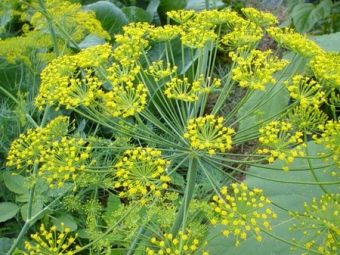Tea for lactation: how to choose and drink?

Some experts in the field of HBV recommend that young mothers who have difficulties with breastfeeding, take special drinks to increase the production of breast secretion. However, many of them, in violation of the reception regime, can not only bring benefits, but also harm the health of the mother or baby.
Most pediatricians agree that to establish lactation, first of all, you need to properly care for your breasts and nipples, eat rationally and avoid stressful situations, and the use of all kinds of lactational drinks is considered as a last resort.
What are the features of the use of such tools? Are there alternative ways to increase lactation? Consider these questions further.
Kinds
Nowadays, in pharmacies you can see many types of lactation drinks, which differ in price, composition and, accordingly, the level of efficiency. Such products are usually produced on the basis of exclusively herbal components, which have a mass of beneficial properties, in addition to lactogonic properties. These include the following plants.
- Fennel. Outwardly, it has many similarities with dill, and its taste is very similar to anise. In addition to stimulating lactation, fennel improves the functioning of the gastrointestinal tract, and also prevents the development of infectious flora in the stomach and intestines.
- Caraway. Significantly enhances the secretion of breast milk. It is also a natural diuretic. To achieve a lactogonic effect, the grass can be used as a basis for the preparation of beverages, and can be added to a variety of dishes.
- Anise. This spice increases the production of breast milk and reduces the intensity of the signs of an inflammatory reaction. It is very effective in treating colds. Regular consumption of dishes or drinks with the addition of anise helps to normalize the functioning of the digestive tract.
- Nettle. It enhances lactation and strengthens the immune defense of both the mother and the baby. The grass is able to normalize metabolism and strengthen the walls of blood vessels.
- Dill. Stimulates lactation and is a hypoallergenic agent. It helps to improve sleep, helps eliminate headaches and discomfort associated with inflammatory processes of the digestive tract.
- Basil. Promotes rapid recovery of the body of a young mother and helps to establish lactation. It also has a positive effect on the immune system, heals the heart muscle and strengthens the central nervous system.
Young mothers can also use ready-made mixtures to stimulate lactation. Which ones are most effective? When choosing this tool, you must pay special attention to their recipe and composition.
We present you a rating of the most popular lactation enhancers among domestic moms:
- Hipp. Lactogonic herbal tea made in Germany. Reviews indicate that this product not only improves lactation, but also contributes to the speedy recovery of women after pregnancy and childbirth. According to leading pediatricians, this is the best tool for lactation. Tea preparation method: dissolve 3-4 tsp. funds in 250 ml of boiling water or pour one tea bag. In severe forms of lactation disorder, it is recommended to drink the drug three times a day. It is necessary to use it for half an hour before the planned feeding.
- Laktovit. The product is made on the basis of advanced scientific developments. Preparation: 1 bag of phyto tea pour 100 ml of boiling water and leave to infuse for 15 minutes. Take the drug must be half an hour before feeding.
It should be noted that the reviews on this product are contradictory. On forums where young mothers share their impressions of drinking tea, there are a lot of negative opinions. Dissatisfaction with customers is primarily due to the unpleasant taste of the drink. However, a significant advantage of the domestic herbal tea is an acceptable price.
- Humana. Lactogonic drinks of this brand are produced by a famous German company. All products are certified and undoubtedly of high quality. Lactational herbal tea does not contain synthetic additives. By its production only natural substances are used.One package is enough for about 35-45 receptions. Preparation: 1 teaspoon of herbal mixture pour 1/2 cup boiling water. Take this drink should be 15 minutes before feeding. Reviews of this tool are mostly positive. The tool, in addition to stimulating lactation, helps to reduce the intensity of colic in a baby. Also, Humana tea has a pleasant aftertaste.
- Bebivita Quite popular among Russian consumers lactic beverage. Available in packs. The feedback on this product is mostly positive, since herbal tea after a systematic intake gives a noticeable effect, and the milk from the nursing mother is actually produced an order of magnitude more.
However, some women criticize this remedy for an unpleasant taste. For those who can not cope with this problem, the manufacturer recommends adding to herbal tea milk or condensed milk.
When is it necessary?
The production of breast milk is useful to stimulate in the following cases.
- Termination of feeding the child due to illness of the mother. When, for some reason, the mother ceases to give the baby a breast for a certain period of time, then, naturally, his development is significantly suppressed. To restore normal lactation, you must take lactic means (ready-made drinks or made according to popular recipes). In this case, the feasibility of using herbal tea is not questioned.
- Unreasonable use of the supplement. The transfer of the child to a partial feeding mixture suppresses the production of own mother's milk. As a result, it has to be restored with the help of special agents that increase lactation.
Important! Resume normal lactation after a long break is quite possible without the use of lactogonic drinks or the introduction into the daily diet of a nursing mother abundant drink. You just need to decant regularly (until complete emptying of the breast) and more often apply the baby. These natural physiological mechanisms will help to restore the previous amount secreted by the mammary glands.
Contraindications
The bulk of pediatricians and breastfeeding specialists agree that in most cases, the use of lactogenic drugs by a woman is unreasonable.
- First, there are several ways to stimulate the activity of the mammary glands without the use of special pharmacological agents. However, many women neglect these tips and for the most part they start lactogonic herbal teas by themselves, without consulting a doctor.
- Secondly, according to some experts, ready-made drinks to increase lactation do not have a pronounced lactogonic effect declared by the manufacturer. Also, a woman may have individual intolerance to one of the components of the tool, which can cause a variety of health problems that are extremely undesirable during breastfeeding.
For example, fennel, a frequent component of lactational herbal teas, has a neurotoxic essential oil in its structure that can trigger seizures. Anise in excess of the permissible dosage, in general, can reduce the production of breast milk. therefore if any problems with lactation appear, you should consult a doctor, and not take the first available dubious drug acquired on the advice of a pharmacist. The specialist will determine the reason for reducing the lactation capacity of the young mother and recommend the most suitable way for her to restore normal milk production, which will be as safe as possible both for her and for the baby’s health.
Important! Do not take lactogonic herbal tea, if you have enough milk or a lot. This can lead to the development of stagnation in the milky ducts of the gland, and the child, in turn, may experience digestive disorders.
How to use?
There are several basic principles for the use of lactic drinks.
- Take this tool is necessary in the form of heat.
- Before use, you should carefully study the instructions for use.
- Take phytotea no more than 200 mg per day.
- It is recommended to use the tool in the morning. Thus, it will be possible to follow the child's reaction to the drug.
- Do not take lactogonic herbal tea overnight. Most often, well-fed and healthy babies do not wake up at night too often from hunger, so bulk milk intakes will be inappropriate.
- Opened packages must be stored in a place protected from direct sunlight.
Sometimes young moms decide for themselves that they should take herbal tea for lactation based on feedback from friends, rather than relying on objective indicators of breast milk production. Reviews of these drinks are controversial: someone assures that only thanks to a special lactogonic agent the amount of milk increased, while others, on the contrary, did not feel any changes.
However, all these are only subjective opinions. Therefore, a young mother who has a choice to drink or not drink tea for lactation should study the complete information about these products from reliable sources before purchasing one of them at the pharmacy.
The E-lactation electronic reference book is considered to be a completely reliable source. If you type the name of the current component of the tool in Latin, then You can see the degree of risk in the application of a lactogon drug, which has four gradations.
- Zero risk means absolute compatibility of the component with lactation.
- Substances from the first group are also possible to eat as a nursing mother.
- Substances from the second and third groups are strongly not recommended for use when breastfeeding, as they carry a fairly high degree of threat to the woman and her baby. It is necessary either to replace them with more neutral substances, or to stop breastfeeding for a certain period.
Recipes
If you are wary of ready lactogon drinks, then the same herbal tea for lactation can be prepared independently at home, using folk recipes. Medicinal herbs necessary for the preparation of herbal teas are sold in pharmacies without a prescription. Contrary to popular belief, black or green tea with milk is not an effective lactogonic drink. It affects lactation in the same way as a mug of warm boiled water. However, whole cow's milk may adversely affect the health of the baby, because it incorporates animal protein, contributing to the development of allergy in infants. Pediatricians do not advise him to give either babies or nursing mothers.
The following teas are considered to be the most effective home-made drinks that help improve lactation.
- Fennel For the preparation of this tool it is necessary to take the seeds of fennel and dill and pour boiling water at the rate of 1 tbsp. l seed 1.5 st. water. Cool the drink. A portion of tea is recommended to be divided into several receptions and to drink throughout the day. These herbs can be replaced by anise or cumin, they have a similar effect. In addition to the lactogonic effect, this herbal tea is useful to drink if the child is suffering from colic.
- Chamomile. This herbal tea is nothing but a decoction of medicinal chamomile. For its preparation it is necessary to pour boiling water over chamomile flowers at the rate of 1 tbsp. l for 1 glass of water and cook in a water bath for a quarter of an hour. The resulting decoction should be filtered and allowed to cool. Chamomile is a well-known sedative that can soothe and have an anti-inflammatory effect without harm to health. However, for an infant, this herb can cause an allergic reaction, so it should be taken with nursing mother with caution.
- Ginger. To prepare such a herbal tea you need to boil ginger root for 5 minutes. The resulting broth to cool. Usually, honey and lemon are added to tea before use. This tool helps to increase lactation, but it should be remembered that honey and ginger are active allergens, so you need to start taking it with small doses and carefully monitor the reactions of the child.
Reducing lactation should not be a cause for panic, because stress acts depressing on this mechanism. According to statistics, only 5% of lactating mothers have a hypogalactia, due to some serious physiological reasons. In most cases, to increase the lactation independently under the force of any young mother.
First you need to calm down. Often the cause of a decrease in lactation becomes emotional imbalance or postpartum depression, but the latter requires a separate treatment, often with the use of strong drugs. In nature, everything is arranged very reasonably - the mother's body produces just as much chest secretion as the baby needs. Therefore, if it seems to you that a single breast milk is not enough for a baby to reach satiety, then it is necessary to apply it to the breast a little more often, especially for night feedings.
Remember! The more often a baby is given breast, the more milk will be produced, since it will always be “in demand”.
Another fairly common problem among young mothers is the lactation crisis, which is manifested by the sudden suppression of the production of secretions by the mammary glands. The essence of this violation is as follows: an intensively growing up infant needs more and more food, while its appetite grows very quickly, and the mother's body does not have time to adjust to the so increased needs of the infant.
Usually lactation crises are recorded at 3-6 week, at 3, 4, 8 months of lactation. The duration of this condition can be 3-4 days, and for the overall health of the baby, they do not pose a threat. When the symptoms of lactation crisis, it is recommended to begin to put the baby more often to the chest.
In some cases, tea for lactation is very useful. Indeed, before being forced to transfer your baby to mixed or artificial feeding, it is necessary to try all possible methods of stimulating lactation. However, in this case it is necessary to be guided by common sense and sober reasoning: if you are suspicious of reducing lactogenesis alone, you should not buy the first available drug and drink it in horse dosages.
Before you conclude about the appropriateness of the use of lactogonous agent, consult your doctor. The specialist will be able to objectively assess the degree of the need to use drinks for lactation, and on the basis of their findings will advise the most appropriate means.
How to increase lactation in just three days, see the following video.







































